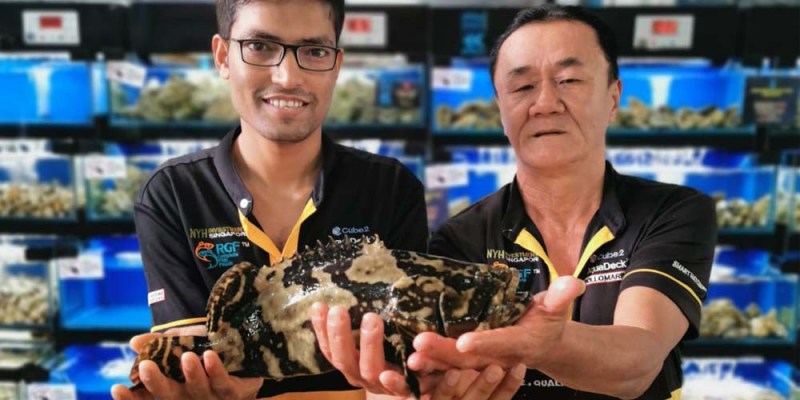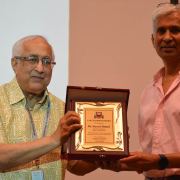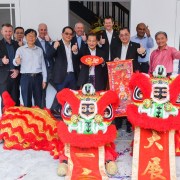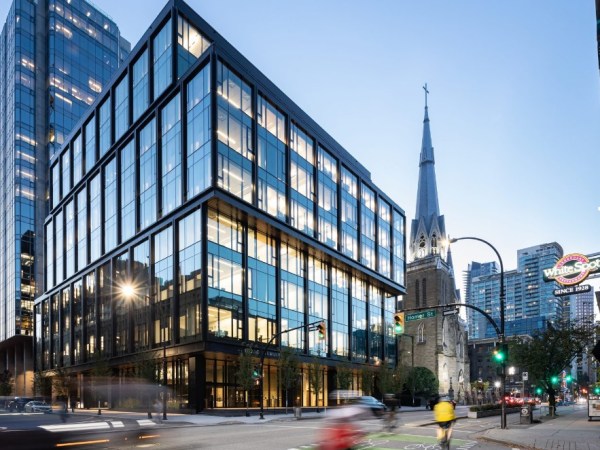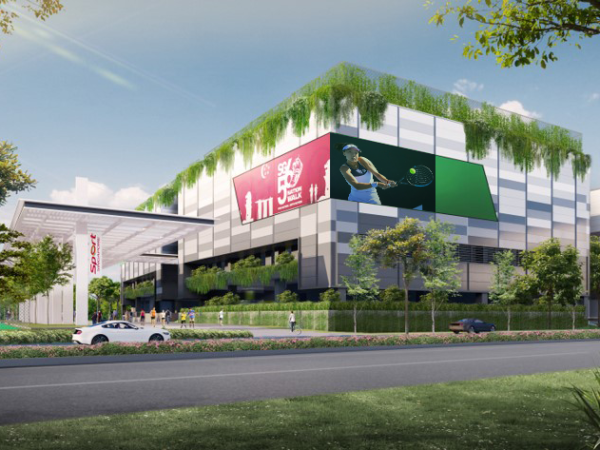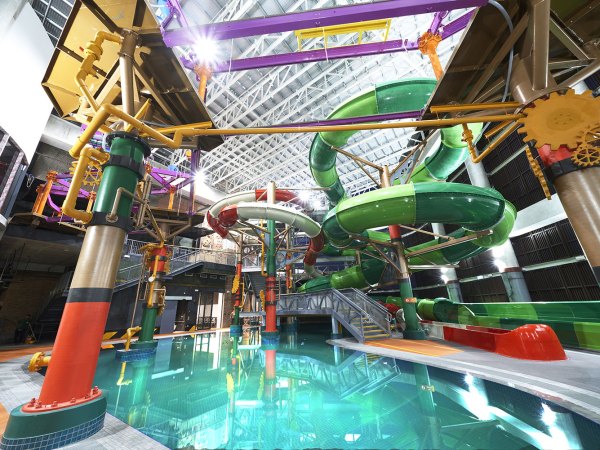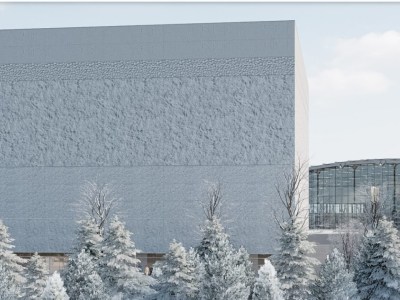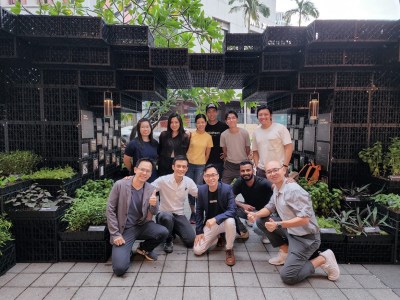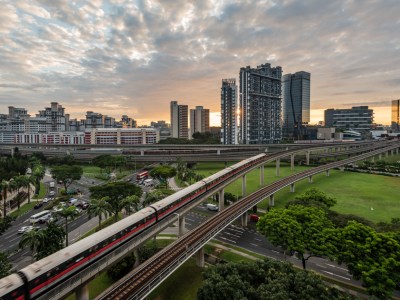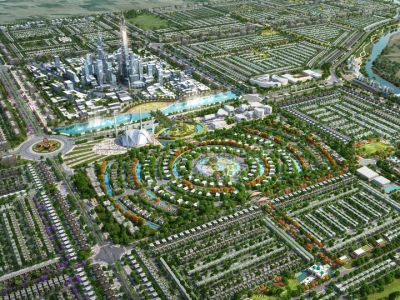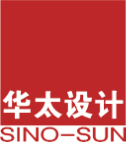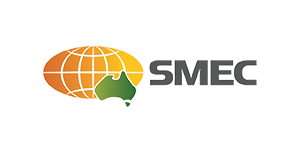Staff of Apollo Marine holding up a grouper right out of its tank at their retail outlet in the Seletar area in Singapore.
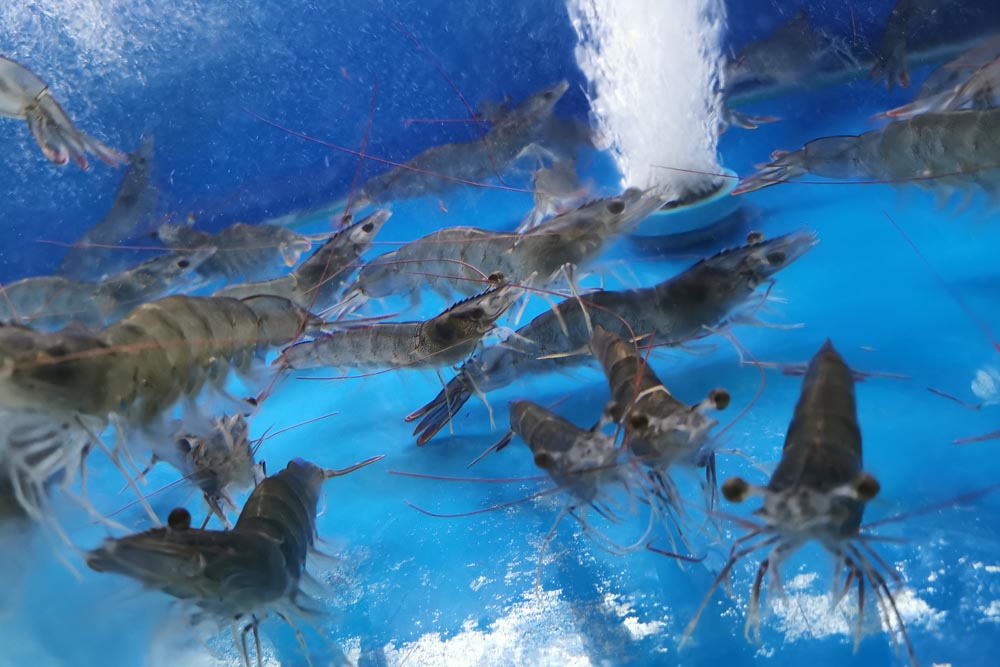
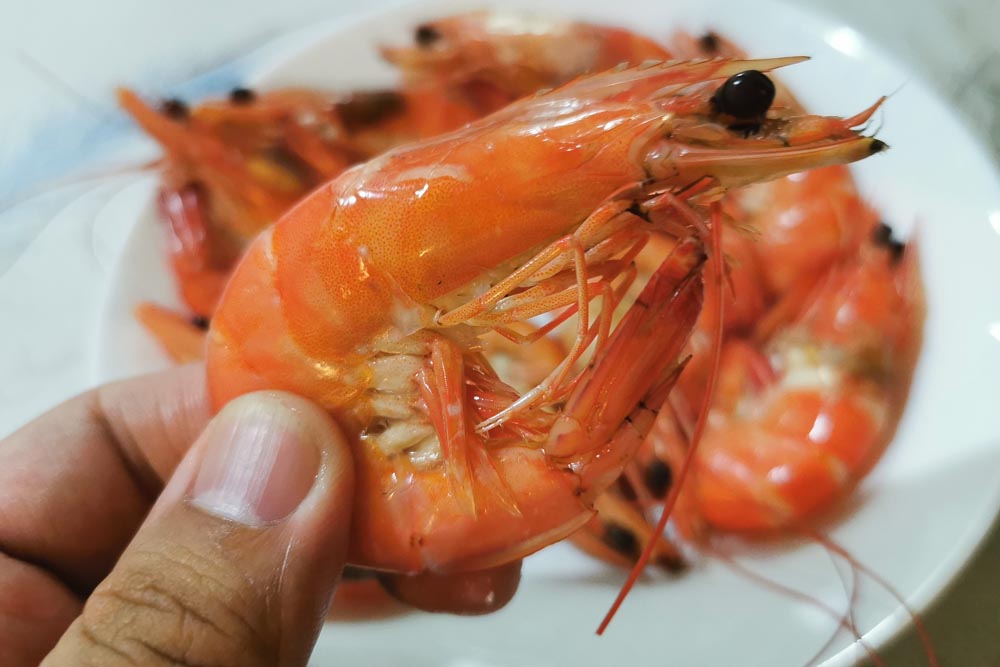
The grouper and shrimp are grown in land-based vertical farms developed in partnership with Surbana Jurong. (Photos courtesy of Apollo Aquaculture Group)
The Surbana Jurong Group is helping its client, the Apollo Aquaculture Group (AAG), boost supplies of fresh seawater fish, raised in high-rise floating farms on land, for the Chinese New Year festivities and enhance Singapore’s food security.
In fact, Surbana Jurong is on track to unveil the first vertical fish farm in the world this year. Slated to be built by September 2020, the 1.5 hectare 8-storey vertical fish farm by Apollo Aquaculture Group will produce grouper, coral trout and shrimp which are highly popular among Singaporeans. Surbana Jurong partnered with AAG to develop the floating ponds high-intensity urban farming concept, a closed loop system with a bio-secured farming environment.
This is how the zero-waste farming system works: Nutrient-rich waste water from the fish tanks can be treated using a wetland system for natural “cleaning” as bacteria and aquatic plants feed on the organic waste. Treated water is then re-circulated back into the system. Where needed, the natural treatment can be controlled further using mechanical systems – depending on spatial and operational limitations.
The nutrient-rich water from the fish farm can also be fed into a hydroponic system to farm vegetables. However, as the current system uses saline water (owing to the seawater species AAG farms), it limits the kind of greens that can be commercially cultivated.
The Surbana Jurong team is working with AAG’s team and other collaborators to conduct research on how to make it operationally viable to cultivate greens using saline water. This will ensure that the farm is a closed-loop system where water and nutrients are concerned, regardless of whether freshwater or seawater fish are being farmed. The farm is designed to have minimal water wastage and it harvests all nutrients to produce high-quality protein and vegetables.
The upcoming 8-storey farm will produce an estimated 2,400 tonnes of grouper a year, said Ms Tan Yok Joo, a Director at Surbana Jurong’s SJ Architecture team. “Our vision is to use the nutrient-rich water in a controlled wetland environment like a kampong (village) with waterways, so that we can create a nature-based multi-trophic system to also farm shrimp, mussels and clams. With supporting infrastructure, we can look at creating a whole value chain, starting from hatchery, nursery, grow-out facility down to feed production, processing and R&D spaces.”
A prototype farm is already in operation and AAG has plans to supply five percent of fish Singapore consumes by 2023, according to Eco-Business, a leading media organisation on sustainable development. The modular vertical farm system is easily scalable and replicable should there be a need for more of such zero-waste floating pond farms.
Food sustainability
Another project enhancing Singapore’s food sustainability is the successful delivery of a poultry processing hub for JTC, also by Surbana Jurong’s Architecture team.
Named JTC Poultry Processing Hub @ Buroh, the eight-storey multi-tenanted development is Singapore’s first one-stop processing hub in Singapore designed to house the poultry slaughtering and processing establishments. The building features shared resources to achieve higher productivity through scale and automation.
Surbana Jurong provided multidisciplinary consultancy services for this project, including architecture, mechanical and electrical engineering, civil and structural engineering, quantity surveying, landscape design, as well as sustainability and resiliency solutions.
The Singapore government has bold plans for the island republic to produce 30 percent of its nutritional needs by 2030. Singaporeans consume 22kg of seafood a year on a per capita basis, compared with the global average of 20kg. The floating ponds design won the WAFX (World Architecture Festival – Xth Edition) Prize in the Water category in 2017.


